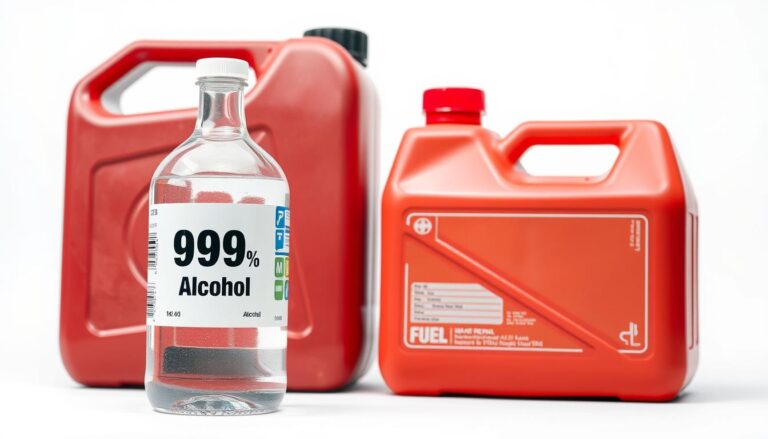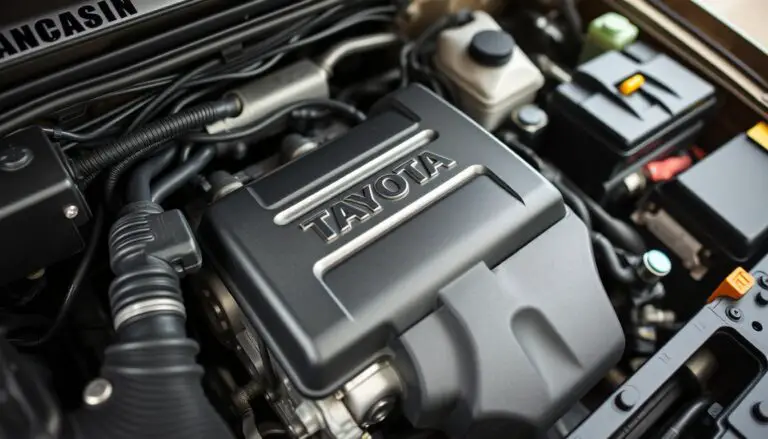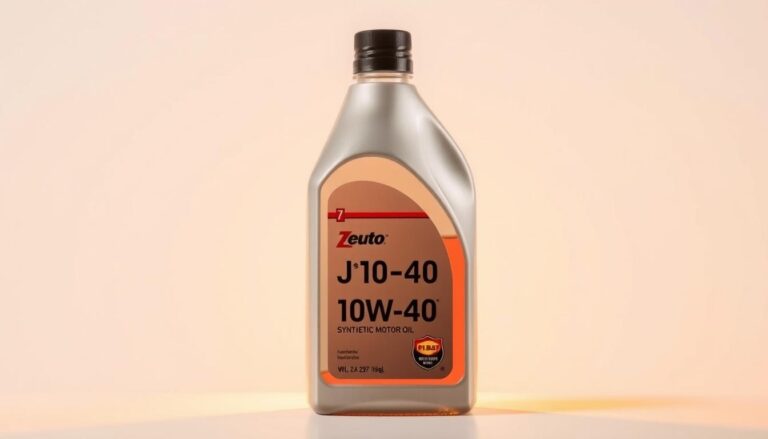Maintaining the transmission system of your vehicle is crucial for its overall performance and longevity. One critical aspect of this maintenance is ensuring the correct transmission fluid capacity.
The Chevrolet Express, a popular van known for its durability and versatility, requires precise transmission fluid levels to operate smoothly. Incorrect fluid levels can lead to serious issues, including overheating and transmission failure.
Understanding the importance of transmission maintenance and how to troubleshoot common issues can save you time and money in the long run. This article will guide you through the process of checking and maintaining the transmission fluid capacity in your Chevrolet Express.
Key Takeaways
- Importance of maintaining correct transmission fluid levels
- Common issues caused by incorrect transmission fluid capacity
- Steps to check and maintain transmission fluid levels
- Troubleshooting tips for transmission-related problems
- Best practices for transmission maintenance
Understanding Chevrolet Express Transmission Systems
Understanding the transmission system in your Chevrolet Express is crucial for maintaining its overall performance and longevity. The transmission system is a complex component that requires specific care and maintenance to function optimally.
Different Transmission Types in Chevrolet Express Models
Chevrolet Express models are equipped with various transmission types, including the 4L60E and 4L80E. The 4L60E is a four-speed automatic transmission commonly used in lighter-duty applications, while the 4L80E is a four-speed automatic transmission designed for heavier-duty applications. Knowing the specific transmission type in your vehicle is essential for proper maintenance.
The Importance of Proper Transmission Fluid Levels
Maintaining the correct transmission fluid level is vital for the smooth operation of the transmission system. Low fluid levels can lead to increased wear and tear, overheating, and potentially catastrophic transmission failure.
How Transmission Fluid Affects Vehicle Performance
Transmission fluid plays a critical role in the performance of your Chevrolet Express. It lubricates the transmission components, regulates temperature, and facilitates smooth gear shifting. The condition and level of transmission fluid directly impact the vehicle’s performance, fuel efficiency, and overall longevity.
| Transmission Type | Fluid Capacity | Recommended Fluid Type |
|---|---|---|
| 4L60E | 12 quarts | DEXRON-VI |
| 4L80E | 13.5 quarts | DEXRON-VI |
| 6L80 | 11.2 quarts | DEXRON-VI |
Chevrolet Express Transmission Fluid Capacity: Maintenance and Troubleshooting
The transmission fluid capacity of a Chevrolet Express varies based on several factors, including model year and transmission type. Understanding these variations is crucial for maintaining the vehicle’s performance and preventing potential transmission issues.
Fluid Capacity by Model Year (1996-2023)
The fluid capacity of Chevrolet Express models has changed over the years due to advancements in transmission technology and design. For instance, earlier models (1996-2003) with the 4L60E transmission typically require less fluid compared to later models (2004-2023) with more advanced transmissions like the 6L80. It’s essential to consult the owner’s manual or a reliable repair manual for the specific fluid capacity of your vehicle.
Capacity Differences Between 4L60E, 4L80E, and 6L80 Transmissions
Different transmissions have distinct fluid capacity requirements. For example, the 4L60E transmission typically requires around 12 quarts of fluid, while the 4L80E requires about 13.5 quarts. The 6L80 transmission, found in later models, usually needs around 11-12 quarts.

Cargo vs. Passenger Van Specifications
Cargo and passenger vans may have different transmission fluid capacities due to variations in their GVWR (Gross Vehicle Weight Rating) and intended use. Generally, cargo vans tend to have larger GVWR and may require more transmission fluid.
2500 vs. 3500 Model Variations
The 2500 and 3500 models of the Chevrolet Express also have differences in transmission fluid capacity, largely due to their payload and towing capacities. The 3500 models, with their higher payload capacities, may require more transmission fluid compared to the 2500 models.
By understanding these differences, Chevrolet Express owners can ensure they are using the correct amount of transmission fluid, thereby maintaining their vehicle’s performance and longevity.
Recommended Transmission Fluid Types for Chevrolet Express
Choosing the right transmission fluid for your Chevrolet Express is crucial for its performance and longevity. The correct fluid type ensures smooth gear shifting, reduces wear on transmission components, and maintains overall vehicle health.
DEXRON-VI Specifications and Requirements
The DEXRON-VI specification is a critical standard for transmission fluids in General Motors vehicles, including the Chevrolet Express. This fluid type is designed to provide superior low-temperature fluidity and high-temperature stability, making it ideal for a wide range of driving conditions.
OEM vs. Aftermarket Fluid Options
When it comes to transmission fluid, owners have the option of choosing between Original Equipment Manufacturer (OEM) and aftermarket fluids. While OEM fluids are designed specifically for Chevrolet Express models, aftermarket fluids can offer similar performance at a lower cost. However, it’s essential to ensure that any aftermarket fluid meets or exceeds the DEXRON-VI specifications.
Synthetic vs. Conventional Fluid Benefits
Synthetic transmission fluids offer several benefits over conventional fluids, including improved thermal stability, better low-temperature performance, and longer fluid life. For Chevrolet Express owners who drive in extreme conditions, synthetic fluids can provide enhanced protection and performance.
Climate Considerations for Fluid Selection
Climate plays a significant role in transmission fluid performance. In hotter climates, fluids with higher viscosity indexes are preferred to maintain lubrication under high temperatures. Conversely, in colder climates, fluids with better low-temperature properties are essential for smooth operation.
| Fluid Type | Benefits | Climate Suitability |
|---|---|---|
| DEXRON-VI | High-temperature stability, low-temperature fluidity | Versatile for various climates |
| Synthetic | Improved thermal stability, longer fluid life | Ideal for extreme temperatures |
| Conventional | Cost-effective, meets standard specifications | Suitable for moderate climates |
How to Check Transmission Fluid Level in a Chevrolet Express
To ensure your Chevrolet Express operates smoothly, it’s essential to regularly check its transmission fluid level. This process involves several steps that help you maintain the health of your vehicle’s transmission system.
Gather Required Tools and Materials
Before you start, make sure you have the necessary tools and materials. You’ll need a clean rag, a dipstick (usually labeled for transmission), and the owner’s manual for reference.
Prepare the Vehicle for Inspection
Proper preparation is key to accurately checking the transmission fluid level. This involves warming up the engine and positioning the vehicle on a level surface.
Engine Warm-Up Procedure
Drive your Chevrolet Express for a few minutes to warm up the engine. This ensures the transmission fluid is at its optimal operating temperature, providing a more accurate reading.
Vehicle Positioning Requirements
Park your vehicle on a level surface. This is crucial because the transmission fluid level reading can be affected by the vehicle’s angle.

Locate and Read the Dipstick
Once your vehicle is prepared, locate the transmission dipstick. It’s usually labeled and can be found under the hood.
Dipstick Reading Technique
Pull out the dipstick, wipe it clean with a rag, insert it back into the transmission, and pull it out again. The dipstick will now have transmission fluid on it, indicating the current level.
Interpret Fluid Color and Condition
The color and condition of the transmission fluid can tell you a lot about your vehicle’s health. Healthy transmission fluid is typically pink or red and should be free of debris. If the fluid is dark or has a burnt smell, it may be a sign that it needs to be changed.
By following these steps, you can ensure your Chevrolet Express’s transmission fluid level is maintained, contributing to the overall longevity and performance of your vehicle.
Complete Transmission Fluid Change Procedure
Changing the transmission fluid in your Chevrolet Express is a crucial maintenance task that ensures the longevity of your vehicle’s transmission system. Regular fluid changes help prevent damage and maintain optimal performance.
Step 1: Gather Tools and Materials
Before starting, gather the necessary tools and materials, including a socket wrench, drain pan, new transmission filter, and the correct type of transmission fluid for your Chevrolet Express.
Step 2: Prepare the Vehicle
Prepare your vehicle by warming up the engine and ensuring it’s on a level surface. Safety first: engage the parking brake and use jack stands for added safety.
Safety Precautions
Always refer to your owner’s manual for specific safety precautions. Wear protective gear, including gloves and safety glasses, to prevent injury.
Step 3: Drain the Old Fluid
Locate the transmission pan and drain plug. Use a socket wrench to remove the plug, allowing the old fluid to drain into a pan. Be prepared for a significant amount of fluid to drain out.
Step 4: Replace the Transmission Filter
After draining the fluid, replace the transmission filter according to the manufacturer’s instructions. This ensures that your transmission system is free from contaminants.
Step 5: Refill with New Fluid
Refill the transmission with the new fluid, using the type recommended by the manufacturer. It’s crucial to use the correct fluid to maintain the transmission’s performance and longevity.
Step 6: Verify Proper Fluid Level
Start the engine, let it run for a few minutes, and then check the fluid level using the dipstick. Ensure the level is within the recommended range.
Transmission Flush vs. Drain and Fill Considerations
When deciding between a transmission flush and a drain and fill, consider the age of your vehicle and the condition of the transmission. A transmission flush can be more thorough, but it may not be suitable for all vehicles, especially those with high mileage.
Transmission Troubleshooting and Common Issues
Understanding the common transmission issues in Chevrolet Express models is key to effective troubleshooting and maintenance. Transmission problems can manifest in various ways, from slipping gears to complete transmission failure.
Signs of Low Transmission Fluid
One of the most common issues is low transmission fluid. Signs include slipping or hesitation between gears, unusual noises when shifting, and a burning smell. If you notice any of these symptoms, it’s crucial to check your transmission fluid level immediately.
Diagnosing Fluid Leaks and Their Sources
Fluid leaks are another common problem. To diagnose a leak, look for red or brown fluid under your vehicle. Common sources include a damaged transmission pan gasket, loose or damaged transmission lines, and worn-out seals. Identifying the source of the leak is crucial for effective repair.
Addressing Burnt or Contaminated Fluid
Burnt or contaminated transmission fluid can cause significant damage. If the fluid appears dark or burnt, or contains metallic particles, it’s a sign that the fluid is contaminated. In such cases, a complete fluid change is necessary to prevent further damage.
Transmission Overheating Problems
Transmission overheating is a serious issue that can lead to premature wear and failure. Signs include overheating warnings on your dashboard, a burning smell, and slipping or delayed shifting. Ensuring proper fluid levels and using the correct type of fluid can help mitigate overheating issues.
Shifting Issues Related to Fluid Conditions
The condition of your transmission fluid directly affects shifting performance. Dirty or degraded fluid can cause harsh or erratic shifting. Regular fluid checks and maintenance can help prevent these issues.
When to Seek Professional Help
If you’re experiencing persistent transmission issues despite checking and maintaining your fluid levels, it’s time to seek professional help. A certified mechanic can diagnose and repair complex problems, ensuring your Chevrolet Express runs smoothly and efficiently.
Conclusion
Proper transmission fluid maintenance is crucial for the longevity and performance of your Chevrolet Express vehicle. As discussed in this article, understanding the transmission system, recommended fluid types, and maintenance procedures can help prevent common issues and ensure smooth operation.
Regularly checking transmission fluid levels, using the correct fluid type, and performing timely fluid changes are essential for Chevrolet Express transmission maintenance. By following these guidelines and being aware of potential troubleshooting issues, you can help extend the life of your vehicle’s transmission.
A well-maintained transmission is vital for the overall health of your Chevrolet Express. By summarizing the key points and best practices outlined in this article, you can ensure your vehicle continues to run efficiently and effectively, minimizing the need for costly repairs and maintaining its performance over time.
FAQ
What is the transmission fluid capacity for my Chevrolet Express?
The transmission fluid capacity varies depending on the model year, transmission type, and whether it’s a cargo or passenger van. For example, the 4L60E transmission typically requires around 12 quarts, while the 4L80E transmission requires around 13.5 quarts.
What type of transmission fluid is recommended for my Chevrolet Express?
Chevrolet recommends using DEXRON-VI transmission fluid in their Express models. You can choose between OEM and aftermarket fluid options, as well as synthetic or conventional fluids, depending on your specific needs and preferences.
How do I check the transmission fluid level in my Chevrolet Express?
To check the transmission fluid level, you’ll need to gather the required tools and materials, prepare the vehicle by warming up the engine and positioning it on a level surface, locate and read the dipstick, and interpret the fluid color and condition.
What are the signs of low transmission fluid in my Chevrolet Express?
Signs of low transmission fluid include slipping or hesitation between gears, unusual noises, and a rough or delayed shifting. If you notice any of these symptoms, it’s essential to check the transmission fluid level and top it off as needed.
Can I use synthetic transmission fluid in my Chevrolet Express?
Yes, you can use synthetic transmission fluid in your Chevrolet Express. Synthetic fluids offer improved performance and longevity, especially in extreme temperatures. However, be sure to check your owner’s manual or consult with a professional mechanic to ensure compatibility.
How often should I change the transmission fluid in my Chevrolet Express?
The recommended interval for changing the transmission fluid varies depending on the model year, driving conditions, and transmission type. Typically, it’s recommended to change the transmission fluid every 30,000 to 60,000 miles.
What is the difference between a transmission flush and a drain and fill?
A transmission flush involves circulating a cleaning solution through the transmission to remove contaminants and debris, while a drain and fill involves simply draining the old fluid and replacing it with new fluid. The best approach depends on the condition of your transmission and the recommendations of your owner’s manual.
Can I change the transmission fluid myself, or should I seek professional help?
While it’s possible to change the transmission fluid yourself, it’s recommended to seek professional help if you’re unsure or uncomfortable with the process. A professional mechanic can ensure the job is done correctly and safely.



